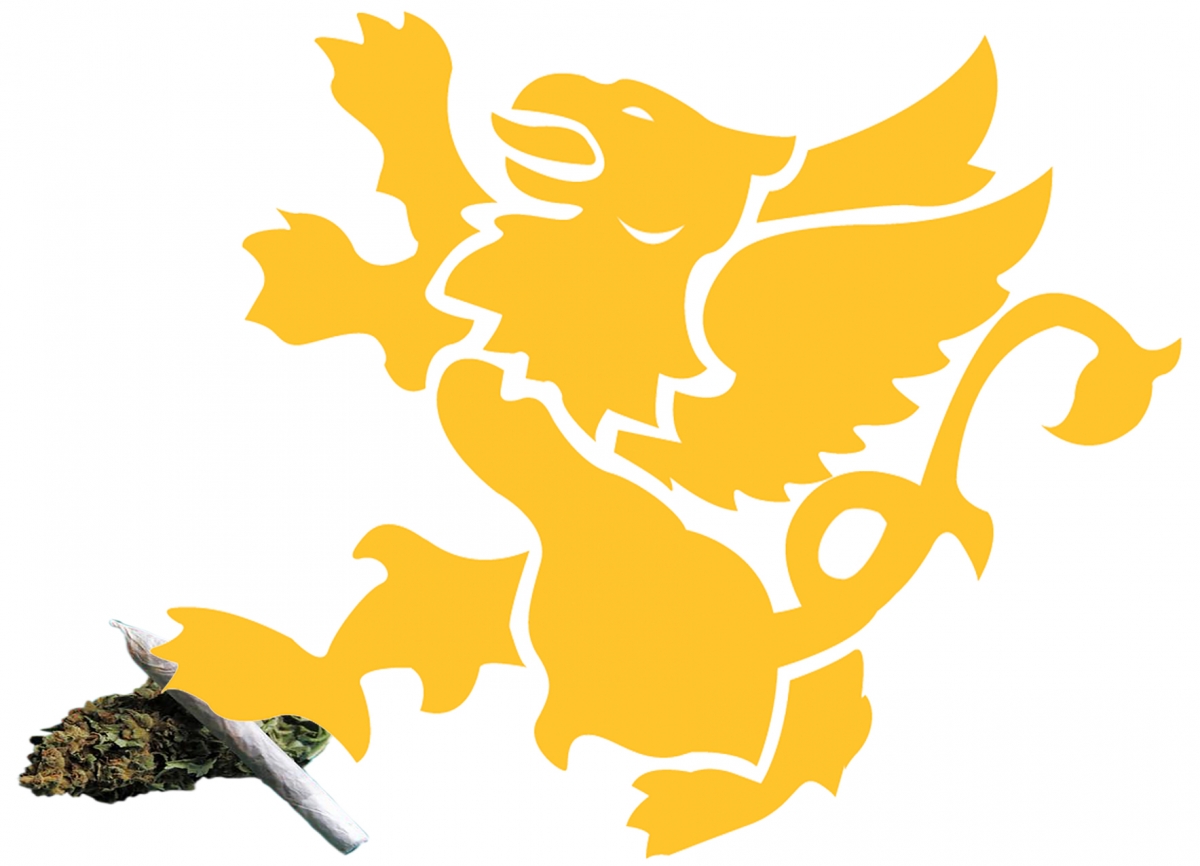
The college will not be going to pot on October 17 – and vice versa.
St. Clair’s administration, following the lead of many other postsecondary institutions in the province, has implemented an almost total ban on cannabis in all forms – including smoked, vaped and edible vegetation and oils – despite the provincial/federal legalization of recreational weed which occurred in mid-month.
On the 17th, this message was posted on the college’s webpage:
St. Clair College has amended its Smoking, Alcohol and Substance Use Policy 3.15 to reflect the new federal laws effective Wednesday, October 17, 2018.
St. Clair College’s amended Smoking, Alcohol and Substance Use Policy will prohibit the use of recreational cannabis anywhere on our campuses including our student residences.
Persons who are in need of cannabis use due to medical need at the College or in our residences have provisions in the amended policy.
The new amended Policy - 3.15 Smoking, Alcohol and Substance Use Policy – can be found at www.stclaircollege.ca/docs/policies/scc_policy_3-15.pdf.
The pertinent section of that revised policy, under the heading “Cannabis”, states:
• St. Clair College is an educational institution and, as such, recreational cannabis must not be used while on College property.
• Students residing in College Residence(s), and who are of legal age, are permitted to carry up to 30g of cannabis on their person, in a sealed and labelled container, while in residence.
• Cannabis shall not be sold, grown, shared, traded or distributed on campus property by any individual or entity whether legal or otherwise.
• Cannabis reduces reaction time and slows down the brain. As such, cannabis shall not be used prior to a class, shop or lab, or where the safety of oneself or others could be jeopardized. Cannabis shall not be used by any employees before or during work hours, including during any unpaid or paid breaks or lunch periods.
• Many placements/articulation agreements require some form of drug testing. It is incumbent on the student to ensure that they are able to meet the drug testing requirements set out. If the student fails the drug testing, their placement opportunity will be jeopardized.
The college’s handling of this matter reflects the “trickle-down/make-up-your-own-rules” scenario that has – rightly or wrongly – dominated the federal government’s initiative to legalize pot. Parliament threw open the flood-gates with few guidelines or restrictions about how the provincial governments should implement the legalization in any universal fashion. And in Ontario’s case, the provincial government is, likewise, allowing municipalities and such institutions as colleges and universities to set their own individual policies and bylaws governing the use – or non-use – of cannabis.
The college administration’s decision is not based upon “moral” principles; but, rather, almost solely upon safety concerns: the risk that cannabis-induced impairment could prove harmful to students (and staff) while working in college labs and workshops.
Even prior to the legalization of recreational marijuana, a suspicion of impairment arising from alcohol or drug use could lead to student/staff banishment from St. Clair classrooms, labs and workshops.
That topic is covered by a number of college policies, including “Non-Academic Misconduct Offences”, which features an admonition against “impairing the instructional process or causing a safety problem to himself/herself or others, by the consumption of any alcoholic beverage, or the use of any illegal narcotics or drug, or any unlawful substance.”
In the case, now, of legalized weed, we suppose that warning could be reworded to read “… any illegal (or legal) narcotics or drug, or any unlawful (or lawful) substance”. The crucial question, now, isn’t really whether the substance at-hand is legal or illegal, but whether impairment – real or reasonably perceived – exists.
In contrast, the University of Windsor is allowing restricted cannabis use on its campus: smoking of pot only in designated areas, but no smoking in residences, etc.. By 2020, even smoking weed at the UofW will be prohibited, when a campus-wide smoking ban – tobacco including – is slated to take effect.
A similar, tobacco-included smoking ban is also under consideration for St. Clair.
More wide-rangingly, academica.ca – a news-review service for those in the postsecondary education business – outlined this wide variety of campus cannabis policies in an on-line post on October 17: “Postsecondary institutions throughout Canada have revised their campus smoking policies in light of national marijuana legalization on October 17th. Durham College and the University of Ontario Institute of Technology have implemented interim bans on all substances, ‘including cannabis, tobacco, and shisha’. Recreational cannabis will not be permitted at Wilfrid Laurier University, although the university will make exceptions for medical use. Likewise, students at Lakehead University and Confederation College will not be permitted to smoke or vape on campus, but Lakehead will let students consume edible marijuana products in their dorm rooms. The University of Toronto Mississauga, which banned smoking on campus several years ago, will implement the same policies toward cannabis. Loyalist College states that it will be 100% smoke-free in January 2019. MacEwan University, meanwhile, will permit cannabis in designated smoking areas.”
For more information on the federal government’s new cannabis legislation, regulations and policies, see: https://www.canada.ca/en/health-canada/services/drugs-medication/cannabis/laws-regulations.html
For more information on the provincial government’s new cannabis legislation, regulations and policies, see: https://www.ontario.ca/cannabis/







